Reviews / Books
This page is for tracking and talking about books I've read, because I am sick of Goodreads. I will probably not write an extensive review for every one unless I feel inspired to.
- Interstellar Pig
- Dark Wire
- On the Beach
- Children of Memory
- Children of Ruin
- Children of Time
- Hallucinations
- Planet Funny
- The Internet Is Not What You Think It Is
- The Word for World is Forest
- Blind Lake
- Embassytown
- Challenger
- The Fort Bragg Cartel
- The Ice Limit
- The Cipher
- 2312
- A Canticle For Leibowitz
- YOU MUST UNDERSTAND THIS IF YOU WANT TO LIVE
- Unthinkable
- Carnivore
- Eyes of the Void / Lords of Uncreation
- Shards of Earth
- The Tusks of Extinction
- The Internet Con
- OceanSpace
- Fine Structure
- Careless People
- There Is No Antimemetics Division
- The Unaccountability Machine
- American Bulk
- In Ascension
- Mindbridge
View List
2.15.26
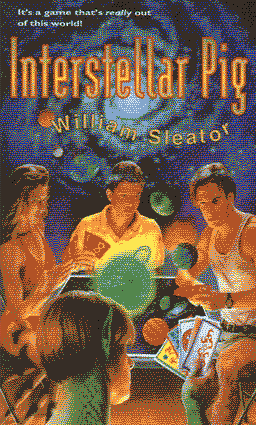
Interstellar Pig by William Sleator
Bantam, 1984
I downloaded this because I'm casually participating in a "book bingo" where one of the squares is "something you read at least ten years ago," and I had a fuzzy memory of finding it pretty interesting in middle school. As far as young-adult books about somebody you meet being an alien go (Bruce Coville being the obvious GOAT there) I think this holds up pretty well. It's wacky, and the board-game premise doesn't make that much sense, but it's rapid enough that there's not much downtime. The idea of a secretly-alien woman trying to hamper your investigation by tricking you into getting so sunburned you can't get out of bed is really funny. The stuff about an 18th-century pirate crew finding a crashed alien adrift at sea is genuinely neat. And the final turn (not bothering to spoiler, you're not going to read Interstellar Pig) of these creatures who brag about their Galactic Intelligence Scores not realizing that they're getting conned by the titular Pig is pretty good. I can see why I still remembered this one.
★★★
2.11.26
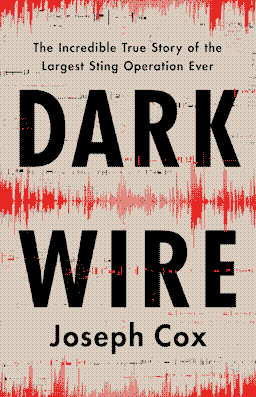
Dark Wire by Joseph Cox
Hachette, 2024
Not bad (I plowed through it in a few days) in that it benefits from being about a fascinating story, but the blurb that it's written “in the manner of a good crime thriller” is a little bit of an oversell; muddy prose and the broad focus called for by a story about global networks blunt the thrill somewhat. There are some very funny details in here about the feds' prerogative to be extremely corny no matter the stakes: Making a custom logo for "Operation Trojan Shield" of a sword piercing an email envelope, Saudi authorities filming B-roll during an arrest to later edit into a sizzle reel. I skipped the last few pages of epilogue that updates you on the situation of everyone mentioned in the story.
★★
2.9.26
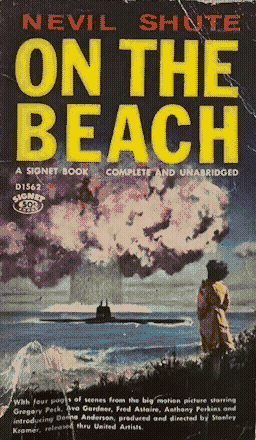
On the Beach by Nevil Shute
1957
Older than I usually reach, but I'm glad I read it. On the Beach is haunting and bleak but occasionally beautiful; a story about what people do with their last few months alive. It's a parallel study of characters who from one angle seem variously crazy (planning a vegetable garden with weeks to go until everyone on Earth is dead) but from a more empathetic vantage are completely right (hanging onto anything they can make matter). I was fascinated by this book's ability to hold side-by-side the total futility and tragic passion of these people's tangled paths, and to revel in the dissonance without diminishing the impact of either one.
★★★½
2.3.26
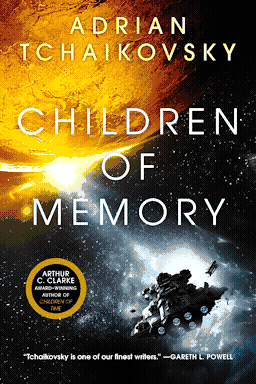
Children of Memory by Adrian Tchaikovsky
2023
Well. This book has some good moments and a few really compelling segments but it's also jarringly unhitched from the rest of the series. Characters you know (or versions of them) hang around feeling like they've wandered onto the set of a different story not concerned with them. We start out at the same premise as the last two—an Earth species of animal evolving intelligence on a planet humans have abandoned—and there is some genuinely good stuff surrounding the Corvids, but then everybody packs up and moves to the periphery of a new sci-fi novel about something else. The last-minute twist where it turns out most of the plot you just read was, in fact, a complicated simulation generated by a mysterious alien computer that's just been on this planet all along does raise some good questions about reality and sentience, but also feels like a much higher-concept and wackier version of the always-disappointing "It was only a dream! Ooooh!" ending parachute. This probably could have been cut into two really good novellas without the need for a connecting thread.
★★½
1.23.26
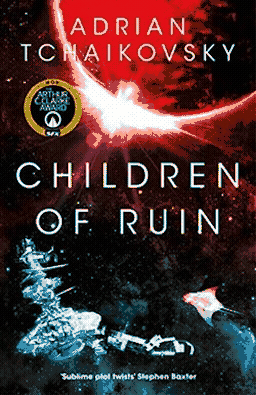
Children of Ruin by Adrian Tchaikovsky
2019
Really enjoyed this one as well. More than once I was struck by just how thoroughly considered the world of these books is; the ways that research about octopus behavior and neurology, for example, has been extrapolated into a model of a planetary society of them that is totally inhuman but does feel fully self-consistent and rational. Even details like "a spaceship full of water would weigh a lot more than one full of air, and so would have to maneuver differently" are considered. And the planet of elevated octopi is only half of the premise! Lots of interesting ideas in this one. Can't wait to get into #3 (I have heard #4 isn't as good so we'll see about that one).
★★★★
1.18.26
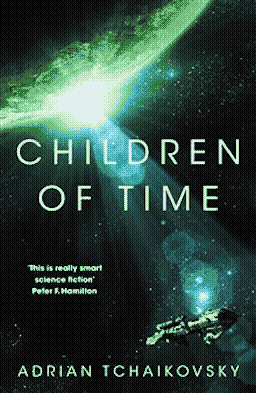
Children of Time by Adrian Tchaikovsky
2015
I watched a great interview with Tchaikovsky about his process and he talked this series up at some length in it, so I started reading this the same day and finished it just a couple days after. This one is a different angle of science fiction than the Final Architecture books (harder, more philosophical) but still has the driving pace and fascinating central premise I liked about those. Introducing two different stories in parallel—one, a human-initiated experiement that exalts a planet of invertebrates to a civilized level of intelligence, the other, the last fragment of humanity fleeing a dead Earth—is kind of a neat idea. Making both of them so detailed and engaging that you care equally about theoretical humans and theoretical elevated bugs takes considerable skill (even if some of the bug stuff later on stretches the credibility of the otherwise very research-based story). The day before I finished this book I genuinely found myself thinking about how it might end repeatedly.
★★★★
1.9.26
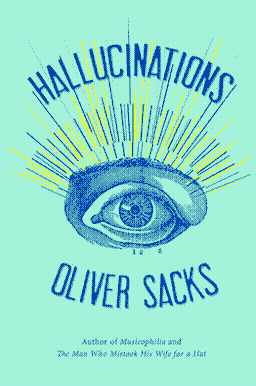
Hallucinations by Oliver Sacks
Knopf, 2012
I kind of fell off this one halfway in and then got re-invested in it when he talks about trying a bunch of different drugs in grad school. A pretty interesting roundup of some case studies that also turns over some little-known corners of the history of psychology. I think this one is totally readable, if not compelling.
★★
12.18.25
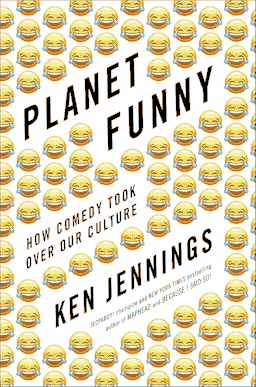
Planet Funny by Ken Jennings
2018
This was a re-read, which I almost never do, but I had been thinking about this book and how hard it hit me when I first read it in 2019 or so—the sort of book I know would have transformed my personality if it came out when I was a teenager. I still think it's good, and I also think it's broadly correct about the comedic infusion of every aspect of American culture being a dire sign. Weirdly, Ken Jennings does not springboard this argument into a critique of capitalism's erosion of art and depraved psychological barrel-scraping in a terminally accelerated modern era, but you can draw the lines yourself.
★★★½
12.5.25
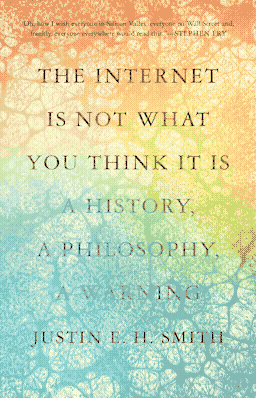
The Internet Is Not What You Think It Is by Justin E. H. Smith
2022
I scooped this up off the back of a great review of it in Damage Magazine, which as it turns out kind of outperforms its subject. The book is interesting in fits and starts but really only delivers one or two of "A HISTORY, A PHILOSOPHY, A WARNING" as listed on the cover. Worth reading if you're interested in hearing about some pre-modern concepts that led to the development of computers, but struggles under the weight of all this history to make a concrete call to action re: the Internet as it exists at present. By theorizing that the Internet and its substrate technology are just the materialization of dreams humans have incubated forever is a unique angle, but to ignore the treacherously steep increases in speed and uniquity that separate this version from its gallery of mideval contraptions and philosophical thought-experiments drains some of the urgency that would have made this book both more prescient-feeling and more compelling to actually read.
★★½
11.29.25
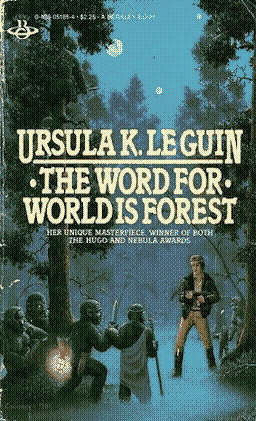
The Word for World is Forest by Ursula K. LeGuin
1972
This book is an enjoyable, interesting work of fiction on its own, but is also so clearly a piece of criticism about masculinity and human-centrism. I think it might hit a little harder for someone more familiar than I with the kind of Astounding Stories macho science fiction it's inverting. I do think it's really funny for the inciting incident of the novel to be "A new shipment of hot babes just arrived at our all-guys space colony. Let's all go into town to ogle them." Either way, does a great job spinning an interesting world to spend time in and is a breezy read.
★★★
11.21.25
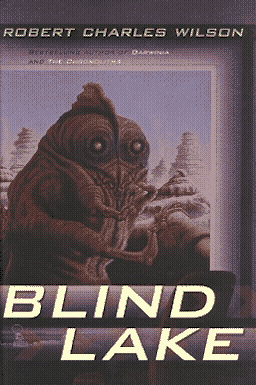
Blind Lake by Robert Charles Wilson
Tor, 2003
Not bad, and has some kind of interesting ideas, but is 90% a book about a reporter figuring out how to enter the life of a single mom and her autistic daughter while some alien stuff is also going on in the periphery.
★★
11.13.25
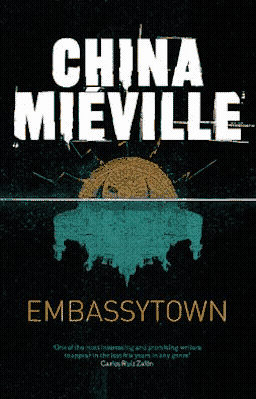
Embassytown by China Miéville
MacMillan, 2011
Really enjoyed this one. The foundational idea is brilliant, and it's scaffolded by a long series of interesting ideas that keep coming until the very end. A fascinating deconstruction of the way language shapes the boundaries of conscious experience, and what it might be like to expand those boundaries. The setting is both totally bizarre and fully fleshed-out (no pun intended) in a way that starts to feel natural as the human-alien cognitive divide it symbolizes starts to shift. I spent a lot of time away from this book thinking about it, which doesn't happen very often. Highly recommend.
★★★★★
10.28.25
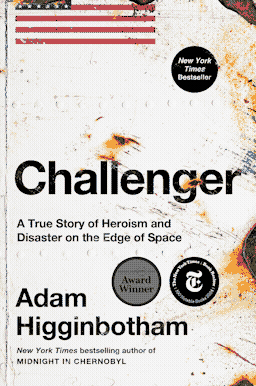
Challenger by Adam Higganbotham
2024
This book obviously benefits from being about a compelling and wild story, but it's told in a way I really enjoyed on its own merits, focused on the people who make up the system and how a systemic failure impacted them individually. Obviously something of a downer but worth checking out.
★★★★
10.19.25
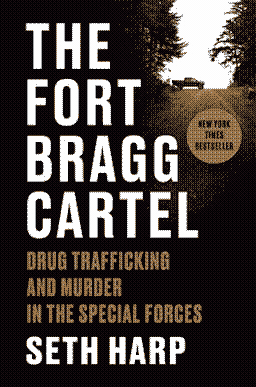
The Fort Bragg Cartel by Seth Harp
2025
Fascinating, depressing, infuriating, lots of things nonfiction on the topic of American empire should be. I already did not respect the military before reading this and I finished it with a sharpened sense of contempt; I can't even imagine how it might hit someone who doesn't have any idea how nasty all that stuff is. Death to America.
★★★
10.11.25
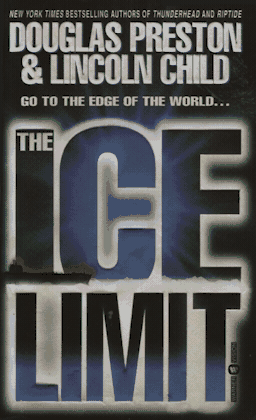
The Ice Limit by Douglas Preston & Lincoln Child
2000
I found this in the donation bin at the library, read the back, and thought it would be a fun pickup. It's a pretty entertaining novel about how cool structural engineering is with a plot driven by a made-up extremely rich guy who is introduced in a scene where the newspaper calls him "The Hitler of Collectors." The fundamentals are solid; the characters are all cohesive and their motives make sense, and the choice of setting is neat. Is it foundationally fairly silly, like the chapter about contracting ILM to disguise a cutting-edge research boat as a shitty old hauler? Yes. Does it sometimes veer into extreme silliness, like how much of the second half is about a suidically-unhinged Chilean naval officer, or the ending implying that the giant meteorite the whole adventure is about is in fact some kind of evil alien egg? Yes, absolutely. And I had fun with it.
★★½
10.1.25
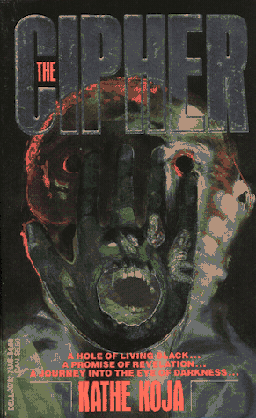
The Cipher by Kathe Koja
1991
I... think I liked this book? It took me a little while to finish because the stream-of-thought method of its prose is so immediate, so engaging that it is kind of tiring to read a lot of in one sitting. It's a pretty effective psychological horror in the sense that the style places you directly in the narrator's mind as his body and life are gradually consumed by some kind of incomprehensible entity living in his apartment building. The drawback of this approach is that every other character, whose thoughts and theories we are not hearing, feel pretty papery in contrast.
It is, of course, fairly gross—even outside the main thing that is happening, it's about a bunch of broke losers living in squalor, and the most bizarre scene isn't even related to the horror plot. Every description of the protagonist's bachelor meals is also comically bleak (white bread with salsa on it is one). Succeeds very much at creating a greasy, sinister, depressing atmosphere; whether you'll like it I guess is just up to how much of that you want.
★★★
9.28.25
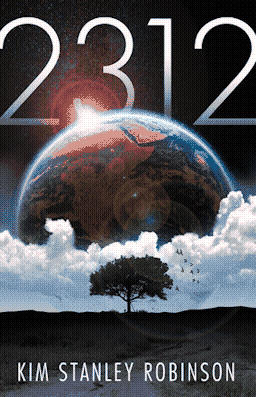
2312 by Kim Stanley Robinson
Orbit, 2012
This is the wackiest Robinson book I've read, and I mean that in a positive way—so often he can get too deep in researching the hard science that it's kind of fun to read about the various monumental projects that make up 2312's setting and not sweat the physics of them (for example, a city on Mercury that avoids getting cooked by riding rails around the planet just ahead of sunrise). I wouldn't say there's much pulp going on but there is some hand-waving that feels refreshingly fun. My one gripe with this book is that I sort of kept waiting for the plot to pop off and when it finally did it felt a little muted. But there are loads of cool ideas on the way there, and you really do like the characters you meet, even if it's a little goofy to imagine six or seven people with this kind of power across the solar system.
★★★½
9.9.25

A Canticle for Leibowitz by Walter M. Miller, Jr.
Lippincott & Co., 1959
This is one of those books that gets kicked around a lot on lists of Great Science Fiction, and to be honest, the science-fiction elements were kind of my least favorite part. The idea of a monastic order dedicated to preserving scientific knowledge after the nuclear annihiliation of society is a great hook for me, and the overall medieval atmosphere is played in a way that isn't too referential to things a modern reader would recognize—but also, electrical schematics would look like arcane runes to someone not familiar with electricity. It brings to mind (and probably inspired) stuff like the "Tin Book" from Mortal Engines—people tasked by tradition with preserving some ancient piece of knowledge that has lost all context and now exists only as the subject of its own preservation, a rosary stretching through time.
There is, of course, a ton of Catholic stuff in here, and the mythological cultural memory of the first bombardment and its fallout literalize both the nuclear anxiety of the 20th century and the spiritual anxiety of someone who feels that the judgement of humanity is at hand and that they must help us all out. The core question seems to be whether science can be morally good if wielded in immoral ways, or handed to the power-hungry, or otherwise hitched to the wagon of society that is always listing toward destruction. There's some dusty old stuff in here, but also some key concepts that I think are just as worth considering today. And that feels hack to write down, but it's true!
The whole third volume, which takes place in a more traditional sci-fi setting, is kind of necessary to clinch the themes and messages the first two set up but is the least interesting part of the novel to me. It's definitely aged more visibly, and kind of has that goofy Asimov imagination disparity where guys in the year 3000 are still smoking cigars and waiting for the newspaper to show up. Aside from the interesting final scene, it's also the most predictable of the acts—of course the guy is gonna go, of course the peace is gonna break—but of course the inevitable turning of the wheel is the point. The final scene, in which our third protagonist witnesses what may be a second Immaculate Conception while he is literally crushed by the weight of ages and literally holds the skull of the first character we meet, feels like a closing of the loop, an invitation to shut the book and open it right back up again.
★★★
8.12.25
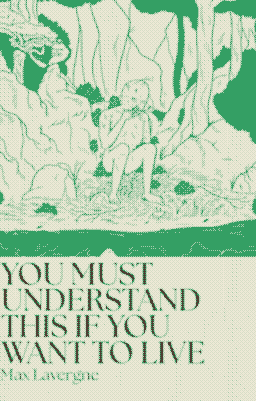
YOU MUST UNDERSTAND THIS IF YOU WANT TO LIVE by Max Lavergne
2025
Understand about this review that I am a big fan of Lavergne's writing: his serialized audiobook THE HORSE AND THE RIDER got me through many grueling mornings at my old job, and I have long enjoyed the short-fiction newsletter INFINITE GOSSIP, stories from which mostly compose this book. Revisiting them all back-to-back I still quite liked them. Max's ability to craft weird, sad little stories wrapped in bizarre, sprawling, dismal worlds is really impressive. If someone who has hardly read any Borges can say this, there's a Borgesian atmosphere to these tales: ancient blood-obsessed cultures, amateur crimefighters, collapsed and collapsing societies, a fascination with Ötzi the Iceman. The throughline, if there is one, is the unwavering self-assuredness of each narrator, thrust as they are into wild circumstances but telling you their tale at a level of remove that is funny, for one, but also serves to make each story more familiar: these aren't works of science fiction or fantasy or surrealism—or, they are, but they read like accounts by people who want you, urgently, to understand them.
I probably pounded through this one a little too fast, since it was largely revisits of things I'd read as emails months ago, and I would recommend taking it one or two at a time and letting them marinate a while, but I would strongly recommend it.
★★★★
8.9.25
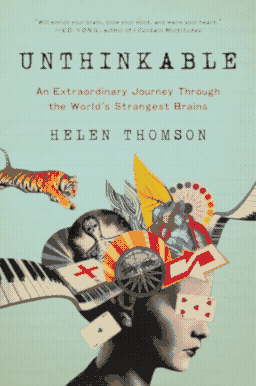
Unthinkable by Helen Thomson
Ecco Press, 2018
I was ready for this to be a little more -science and less pop- than it ended up being, but I found it totally readable and sort of sweet. The idea of de-clinicalizing the stories of these people (each with a unique brain disorder that has altered their world) by just visiting them at home and talking to them is nice, and it's not like Thomson is trying to pass off amateur descriptions of subjective experience as real data. She's just interested in meeting them and hearing from them and, ultimately, using them as a mirror of extremes to reflect on her own—our own—conscious experience. Very nice overall.
★★★
7.15.25
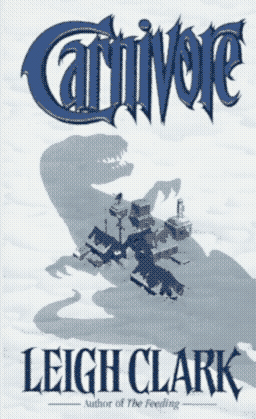
Carnivore by Leigh Clark
Leisure Books, 1997
I downloaded this because the cover looked very silly, and it is very silly. A bunch of characters who are all either "Good Tough Guy" or "Evil Tough Guy," with the single exception of "Lady," chip out and thaw a frozen dinosaur egg at an Antarctic research station. Immediately after it's revealed that the real purpose of the research base is to hide a bunch of radioactive waste, Lady says, almost verbatim, "We should have enough time before the egg hatches to get it out of here. Unless, of course, it was exposed to a bunch of radioactive waste. That would make it go crazy." Then the dinosaur goes crazy, breaks out, and eats roughly one guy per page for the whole rest of the novel, at what is apparently the most insanely overstaffed secret science outpost in Antarctica. He also destroys a cargo plane by climbing on top of it during takeoff, twice, and kicks a bomb rolled over the ice towards him back to its thrower, destroying the base and prompting a Good Tough Guy fleeing the scene to conjecture "Maybe they tried to roll a bomb at the T-Rex and he kicked it back toward them." Also amusing to me was the line "Reverberations from the explosion echoed like shock waves," which reminded me of "an avian bird" from the episode of E1 where they hold a terrible poetry reading. This book is really stupid but I also really enjoyed it, so I have no idea how many stars to put down here.
7.24.25
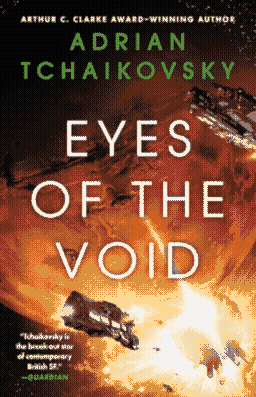
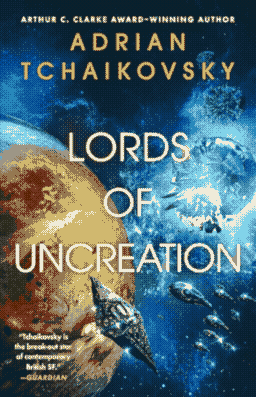
Eyes of the Void / Lords of Uncreation by Adrian Tchaikovsky
Orbit, 2022 / 2023
This is the strongest sci-fi series I've read since The Expanse. Not just far-reaching in its concepts and foundation but riveting to read in the moment. I found myself thinking about these books a lot when I was away from them. Even as the pulpy and (refreshingly?) unscientific stuff about the mysterious ancient hyperspace structures and their psychic inhabitants started to pay off — when the scope threatened to spiral out of control entirely — it hung on and stayed really strong through the end. I had a great time reading these and highly recommend.
★★★★★
7.15.25
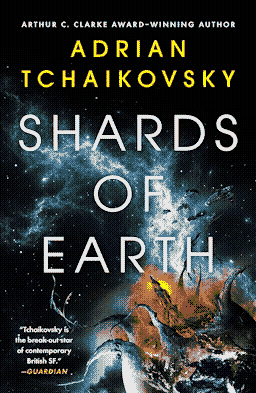
Shards of Earth by Adrian Tchaikovsky
Orbit, 2021
This got recommended to me when I finished the Three-Body Problem books, and I was kind of surprised by that once I got into it. There is just the right amount of goofiness here—it could easily fly over the edge into quipping territory, but never does. Still, the characters and the network of worlds they come from are all a lot of fun (planet of crab-type alien guys whose social strata are defined by being good at board games). Tchaicovsky excels here at making the strange familiar, and totally made-up and bizarre creatures sort of relatable. I liked this enough that I immediately picked up the sequel, and I'm having a lot of fun with that too.
★★★★
7.12.25
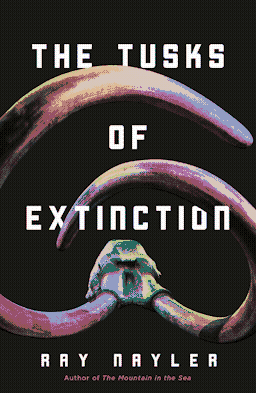
The Tusks of Extinction by Ray Nayler
MacMillan, 2024
Nayler's debut novel The Mountain In The Sea was really great at creating a world alarmingly adjacent to our own and wedging open those differences until the whole thing spiraled into abstraction. This book does the same thing in much less time, imagining a world where elephants are extinct but mammoths have been engineered back to life, and where the expertise of the world's last elephant expert is crucial to keeping them alive. It has some pretty wild ideas, some of which you just have to buy because they make the story work, but his prose is smooth and this one is a pretty quick read. I liked it.
★★★
7.9.25

The Internet Con: How to Seize the Means of Computation by Cory Doctorow
Verso, 2023
I've had this book kicking around forever and put off reading it because I figured I had already gleaned Doctorow's thesis ("enshittification," etc.) through osmosis and posting. But the case he makes here—founded on the principle of interoperability, and describing in alarming clarity the fundamental failures of regulation in tech—is compelling, concise, and loaded with anecdotes that will make you mutter "oh, no" á la The Unaccountability Machine. It's highly readable and fairly digestible, but honestly feels a little short. I feel like there is a 400-page Director's Cut of this book that I would like even more.
★★★★
7.6.25
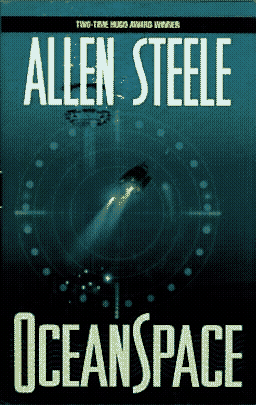
OceanSpace by Allen Steele
Ace, 2001
The main thing I will remember from this novel is the extremely 2001 idea that "obviously books will be electronic in the future. They will be two iPads hinged together, each of which holds one copy of one book."
★★
6.30.25

Fine Structure by qntm
2021
I grabbed this alongside There Is No Antimemetics Division and I think I ended up enjoying this one a lot more. It's weird, and a little unpolished, but it is absolutely packed with ideas and it never stops moving. The first three or four chapters basically read like a short-story collection, introducing different characters in different places, and then gradually weave together until the whole thing is blasting along at breakneck speed. Has some ideas and setpieces, especially toward the end, that I have kept thinking about how cool they are.
★★★★
6.18.25
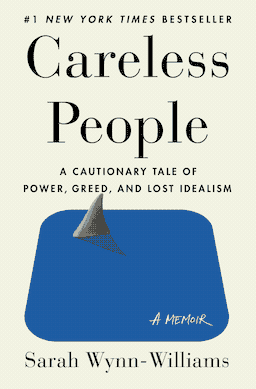
Careless People by Sarah Wynn-Williams
MacMillan, 2025
I would liken this book to The Unaccountability Machine pretty closely, and in fact I might recommend reading that before you read this, the story of the 2010s at Facebook and the complete disregard by its makers and managers for the increasingly real hell it was unleashing on society. I also found it kind of charming how culpable Wynn-Williams is throughout, acknowledging immediately that she's embarrassed to have thought working at Facebook was aspirational even in 2009. Also I can't believe she waits until the epilogue to reveal that her psycho boss was dating Bobby Kotick.
★★★
6.14.25
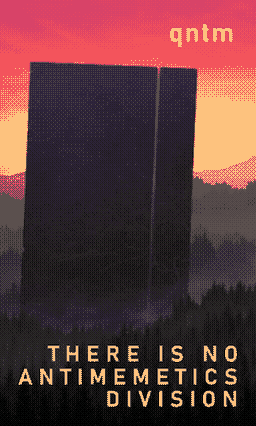
There Is No Antimemetics Division by qntm
I have been online enough to hear periodically about the SCP project, but I've never really explored it in much depth. To me, the most interesting stories people submitted were the silly anomalies like “We found a vending machine that still has Pepsi Blue. Not clear who is stocking it” and the rest was amateur horror for the TVTropes crowd. But it's also true that I am a hater and a snob.
Anyway, I picked this up off a recommendation and just took it straight without thinking about the broader "universe" and I really liked it. The concept of an entity that is dangerous because it insists on being forgotten is a very funny idea, and it's rolled out to every possible corner here to form a story that more than once got me to think "but what if you tried—" and then tried it. And for my previous writeoff of the SCP setting, I honestly really liked the hook being that all these characters are facing down this cosmic threat for a day job, which lends a shade of Vandermeer. The jumps between characters and the occasional weird, unexplained prop or setpiece thrown in keep the pace up and the energy high, and the prose itself flows professionally, if some scenes get a little gratuitous.
★★★½
5.29.25

The Unaccountability Machine by Dan Davies
University of Chicago Press, 2024
I really liked this book in the way you can like a political thriller or a Conner O'Malley bit, which is to say I was thinking "uh-oh" pretty much nonstop throughout. Davies leverages the midcentury school of cybernetic thinking—largely forgotten now after a brutal erasure by the profit-worship thinking of Friedman and Welch—and makes the argument that if emergent systems like corporations and states can be reasonably called "artificial intelligences," it might logically follow that they can become, in a sense, mentally ill.
The concept described in this book of the "accountability sink" (a name for the practice of making evil decisions but framing them as inevitable policy-following) is something I know will permanently inform the way I see the world. Human-built systems have broken the reins of human control; no single person can be satisfactorily put on trial when a corporation or other cybernetic organization causes death and suffering.
Overall I think this book is a great introduction to cybernetics (I understood it okay) and gives you some great references to read later. The middle chapters are basically a retelling of Stafford Beer and can get a little slippery, but the amount of real-world observation backing up Davies' claims keeps it from getting too abstract.
★★★
6.3.25

American Bulk by Emily Mester
2024
This one is great. Mester's way of writing is so lurid, so immersive, and frequently extremely funny. The very first essay, about how she learned to associate brand names with logos before she learned to read, does so much to hook you immediately, and while there are a few slouches later on it keeps firing like that nearly the whole time. I tore through this book in two or three days. It is the best narrative critique of capitalism I think I've ever read.
★★★★
5.26.25
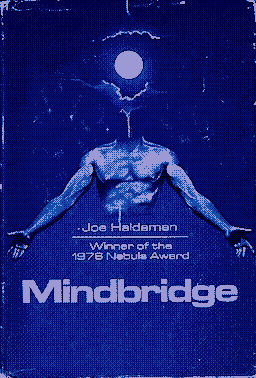
Mindbridge by Joe Haldeman
1976
A little while ago I read Haldeman's The Forever War and I thought it was pretty good. I found Mindbridge a little weirder and further-reaching and I liked it a lot more. Telling the story partially through future-dated excerpts of research papers and biographies is genuinely a fun idea, and the setup (a team of people with the hyper-hazardous job of exploring and terraforming alien planets by way of a matter-transmission technology) makes this sci-fi story totally devoid of spaceships, which I think is pretty interesting, as is the titular Mindbridge. For being 50 years old this one is refreshingly original.
★★★★
5.22.25
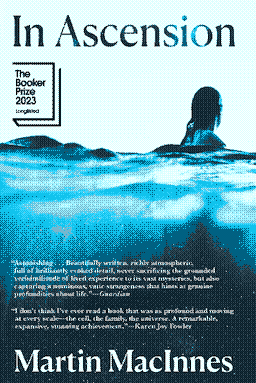
In Ascension by Martin MacInnes
Atlantic, 2023
When I started this book I thought I would probably knock it out in a couple days, since it's only about 200 pages. Instead it took me about a week and I was constantly surprised at just how much plot had happened compared to the page count.
Really I think this could be three books: A literary novel about a Dutch woman's abusive childhood, a mystery set at sea, and a near-future sci-fi story about a deep-space mission. But managing to pack those all together in a way that fits takes a lot of talent. A huge variety of settings are made to feel increibly real and alive, and the characters you get to spend any time with feel just as vivid.
★★★
© 2025 Jack Grimes. Made by human labor.